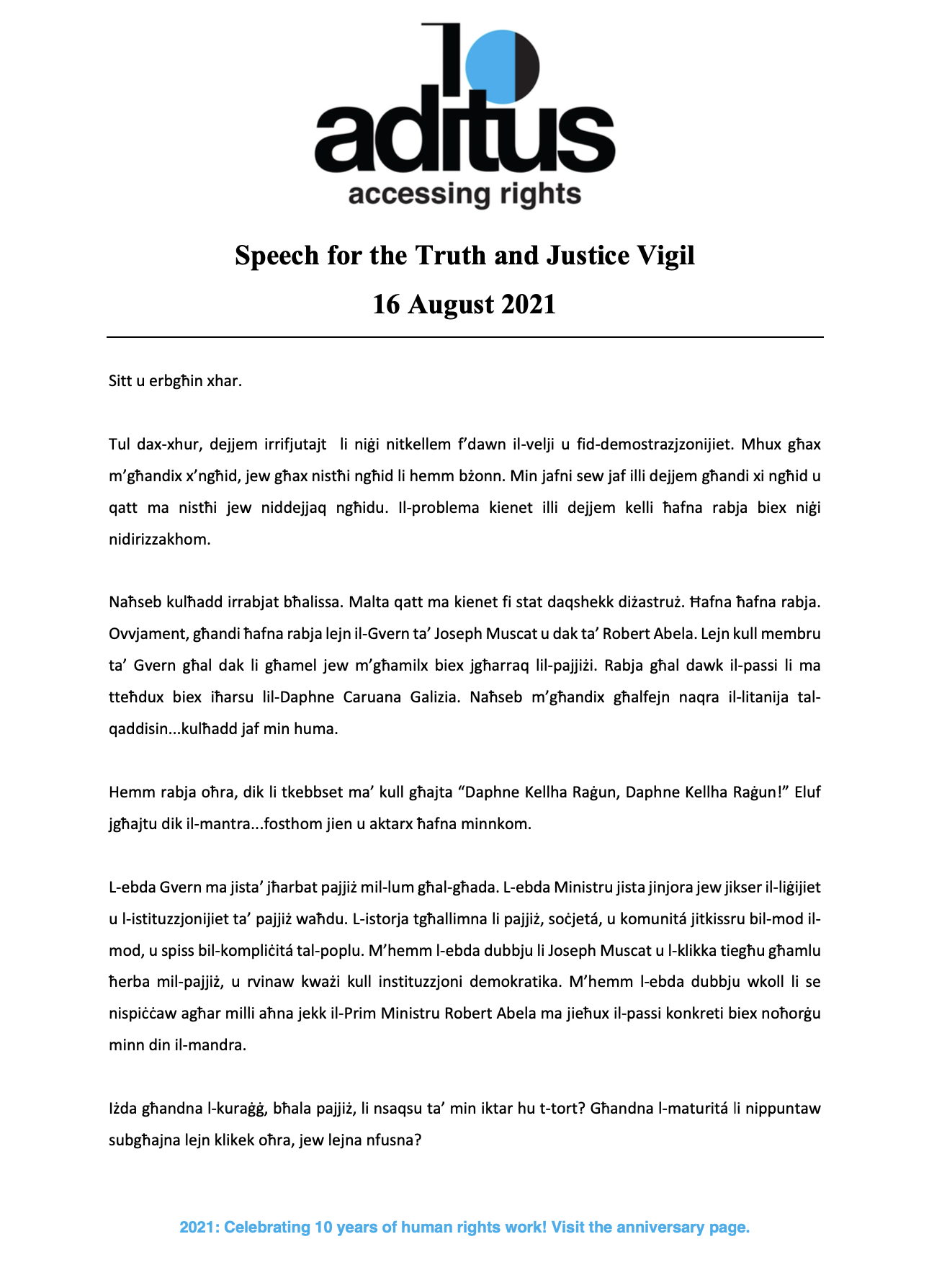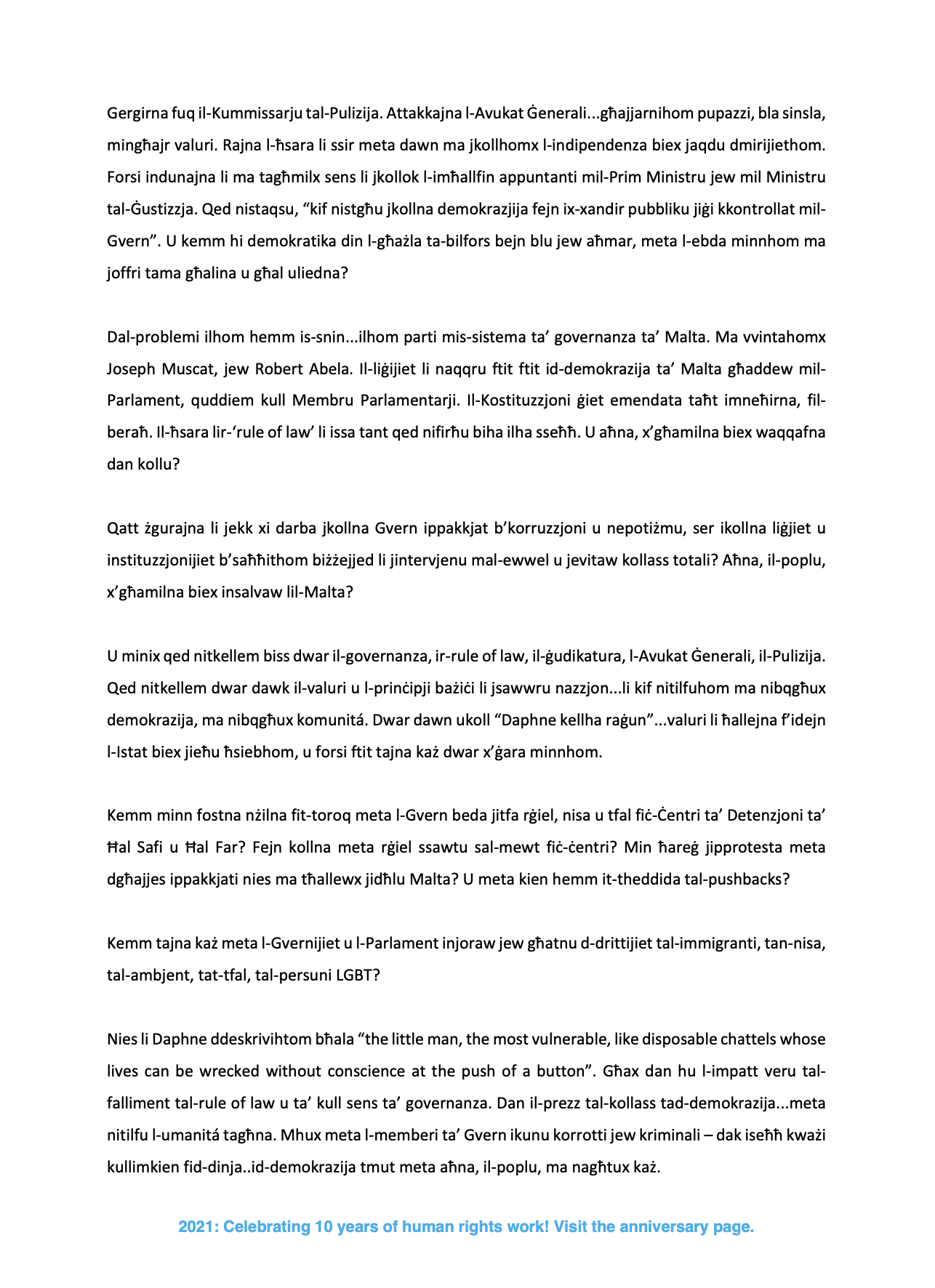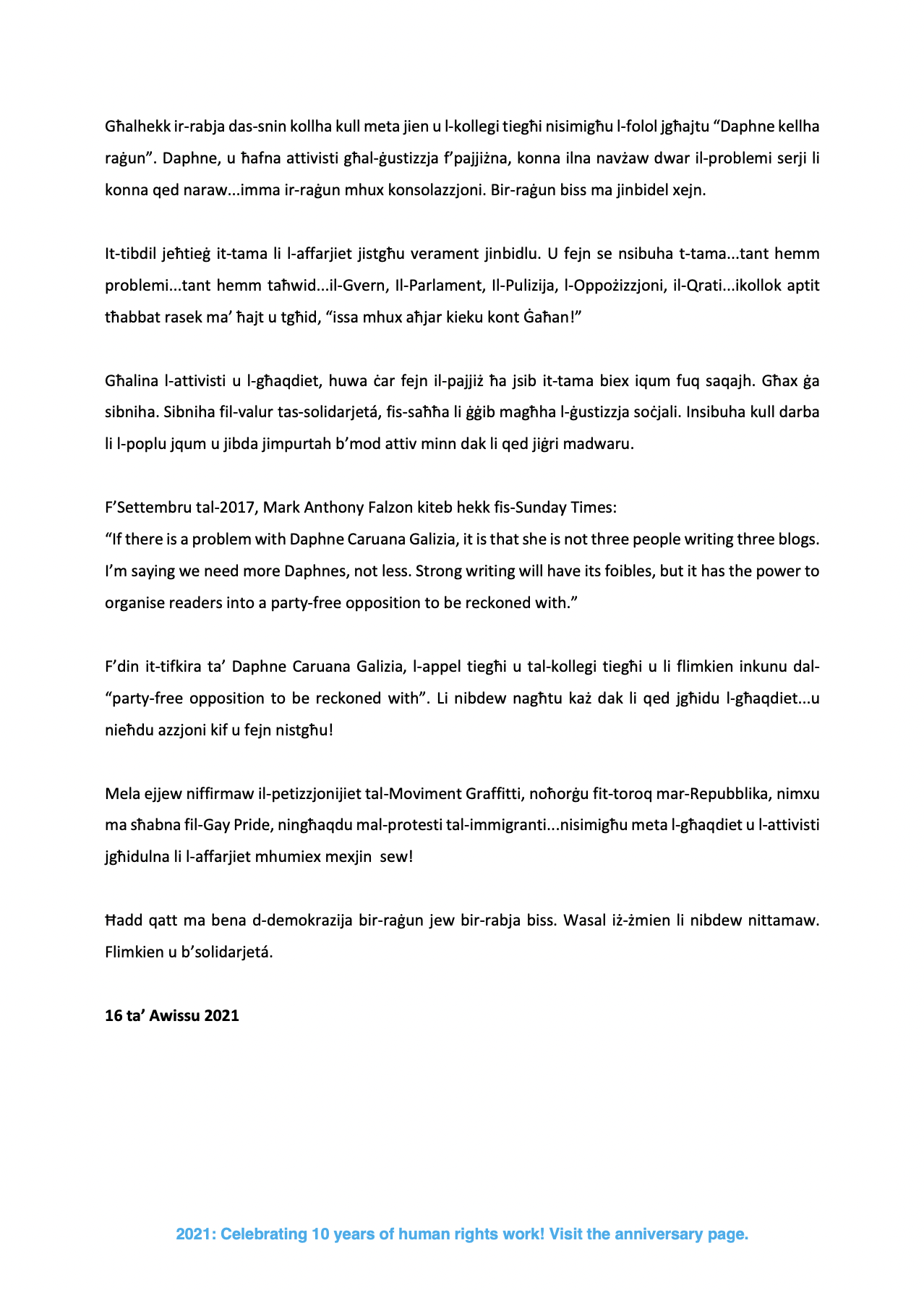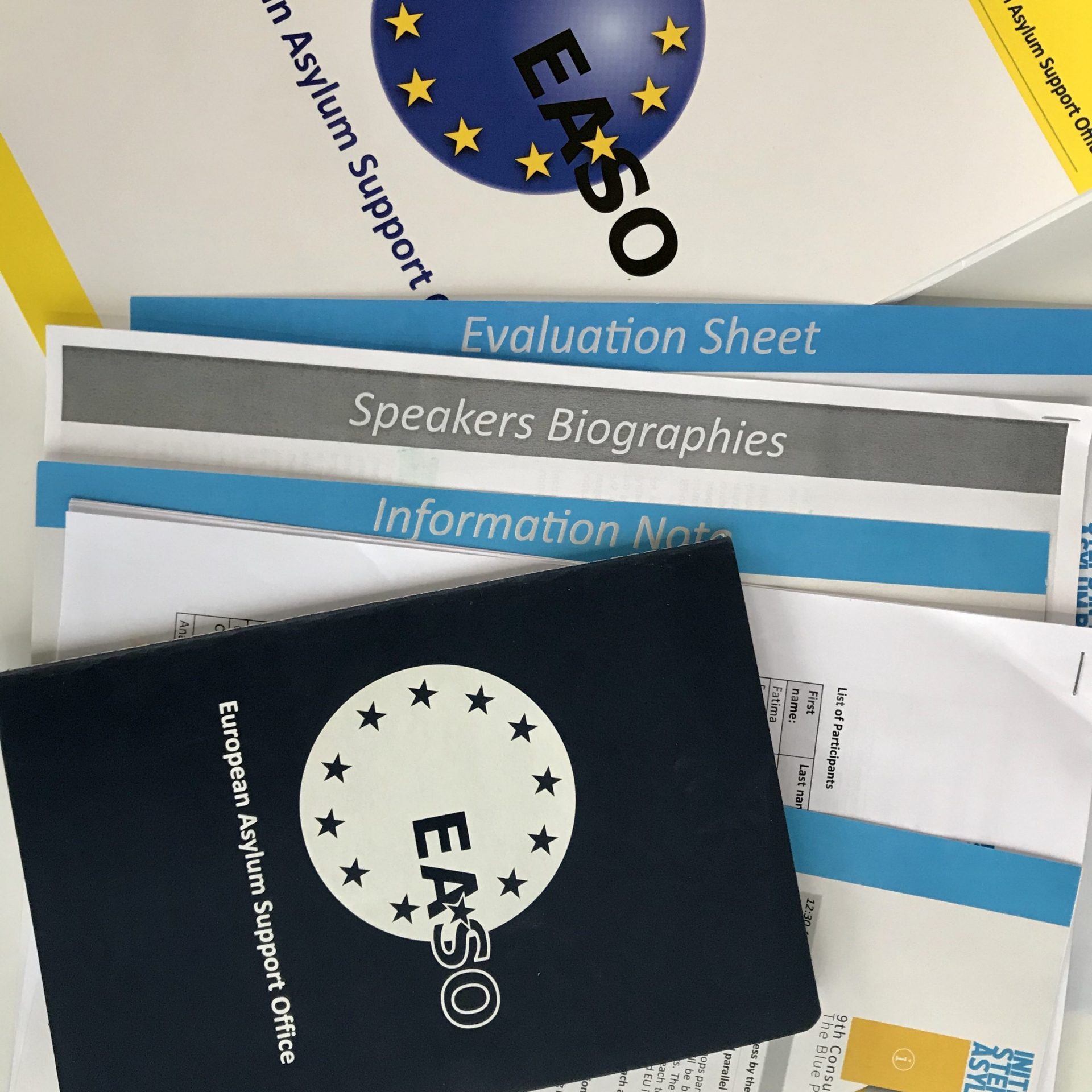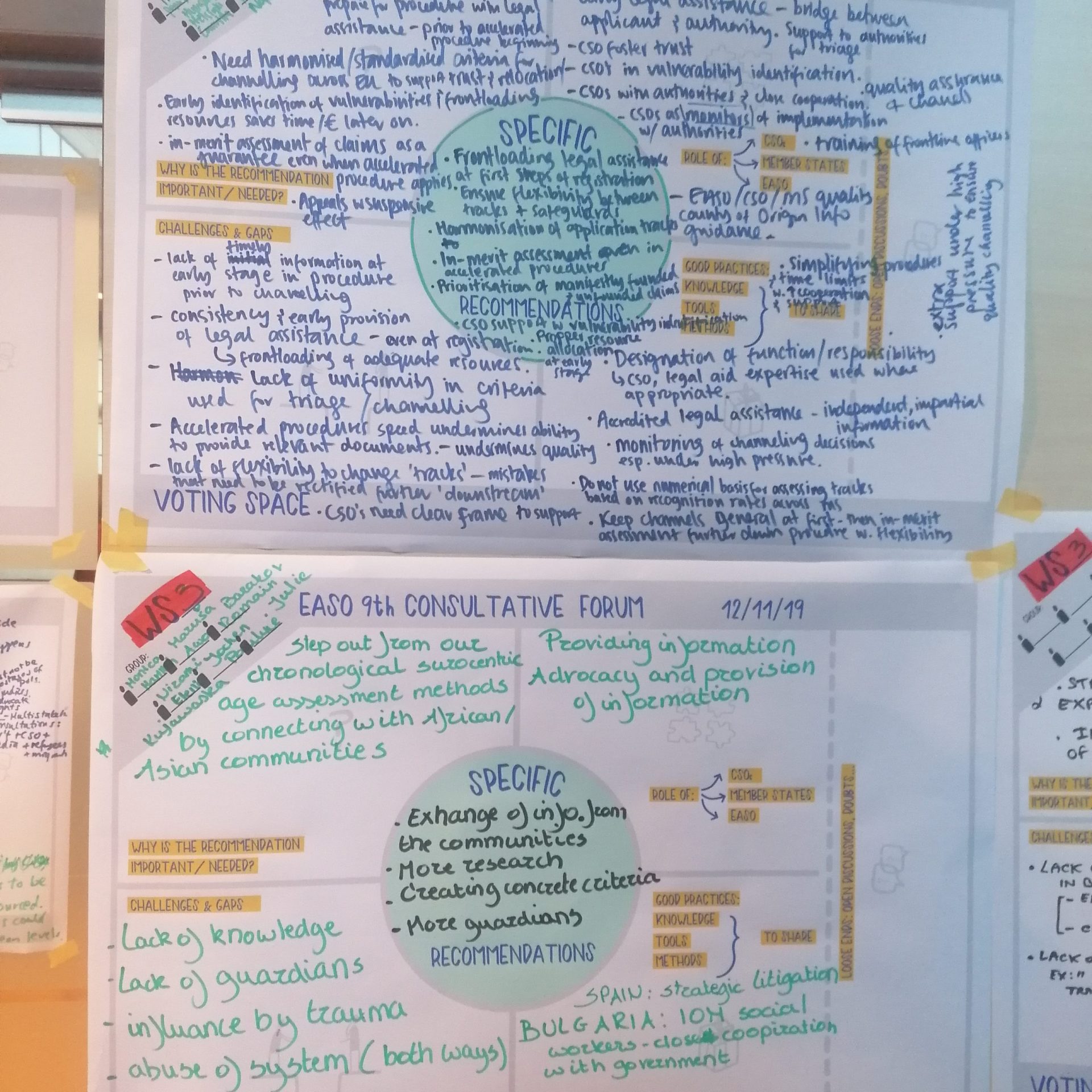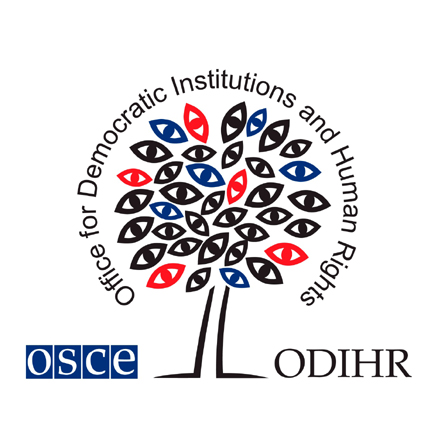On 12 November, I was in Brussels to attend the 9th EASO Consultative Forum Plenary Meeting. This meeting is a gathering of NGO representatives from all Europe, stakeholders from Member States, European Union officials (EASO and European Commission) and the United Nations (UNHCR).
This year’s Forum was focused on the initial steps in the asylum procedure and the aim was to exchange knowledge from different types of stakeholders.
We heard different panel discussions from experts stressing key considerations, with the opportunity to present questions on issues we’re all facing in our work. Civil society, Member States and European institutions officials had a chance to express their views and hear each other.
Final recommendations from the different workshops focused on outreach and information, registration, and channelling of applicants with special needs.
This gathering is a great opportunity for everyone to learn more, exchange and get inspired in order to do a more appropriate and fairer work. I sincerely thank EASO for supporting my participation at this meeting!

